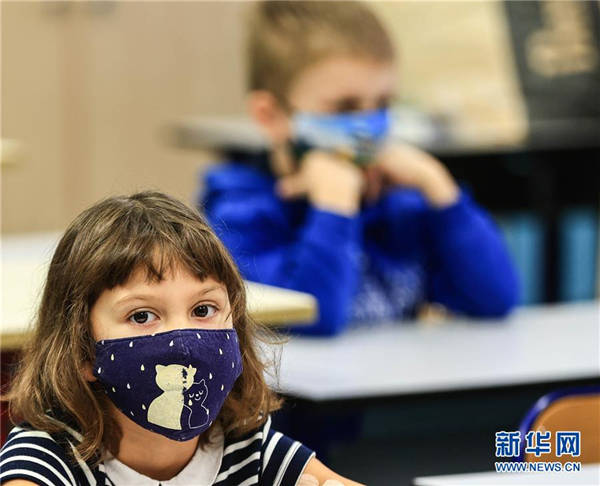Now is the time to count our blessings and hope for the best


In the midst of a deadly global pandemic, life can provide some wonderful surprises. Even as we mourn losses, life does go on, and new life begins.
We were blessed with our first grandson in 2019, and we were able to be present for his birth in the United States. I saw him again a year ago. Since then, contact with my grandson and my wife and most of the rest of my family has been only through video calls-as is the case with so many millions of families.

Now, my eldest son and daughter-in-law are expecting again, and we anticipate my grandson having a new baby brother this summer.
I'm very thankful for this bounty of blessings, which helps balance the ledger a tiny bit after a year filled not only with loss of life from COVID-19, but also social isolation, financial insecurity and interruption of life plans around the globe.
Living in China, I have been somewhat insulated from the worst of the devastation that COVID-19 has wrought elsewhere. But I also have to wonder about how the pandemic and its long-lasting consequences may affect the lives of my children and grandchildren in the short term and far into the future.
I think we are just starting to see some of those effects, and we still have not conquered the virus.
On the plus side, we have seen what scientists can do, especially if they work together. The pandemic has been devastating, but it also is true that we have a variety of effective vaccines that have been developed in a number of countries, including some produced by China.
There are efforts afoot to make those vaccines available worldwide, including the United Nations-backed COVAX facility. China joined last year and the new administration in the US says it plans to join, too.
Technology, enabling remote learning, has helped to lessen some secondary effects of the pandemic as governments have been forced to cancel classes and restrict people's movement.
There are clouds on the horizon, however. The pandemic has exposed decades of neglect in healthcare and education spending in many countries. As many economies struggle and government budgets are strained, it will not be possible to remedy those faults quickly.
The education of millions of children has been seriously affected, and for some of those children in the developing world, it will never recover. That means a great deal of human potential will be lost. A report issued by the Organization for Economic Cooperation and Development last year says that while spending is directed to the most pressing needs, "long-term public spending on education is at risk".
While numerous reports have found that street crime and organized crime decreased worldwide with the initial pandemic restrictions last year, some types of crime have started to increase as restrictions have been lifted and people have found themselves with few job prospects.
Hard economic times will continue in most of the world for quite some time.
Trends of accelerating technological development, such as in artificial intelligence and automation, will continue. That will help us solve some problems but also continue to exacerbate inequality. Low-skilled jobs will continue to disappear, and those who haven't had the educational opportunities to prepare for the skilled jobs of the future will be left behind.
Inequality worldwide, which was already on the rise, is likely to increase. Faced with such pressing problems, it's fair to wonder whether the world will muster the determination necessary to prevent the worst effects of climate change.
I hope that, for the sake of our children and grandchildren, we are up to tackling the multiple challenges that have suddenly become more difficult.




































